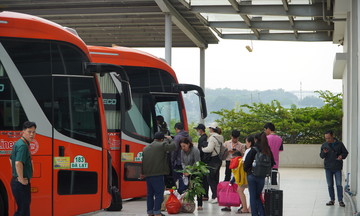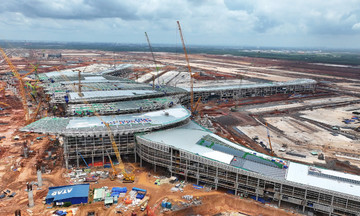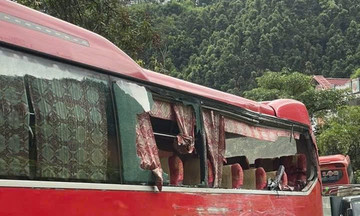The Ministry of Agriculture and Rural Development has proposed replacing district-level land use plans and annual district-level land use plans with commune-level plans in the draft amendment to the 2024 Land Law. The proposed commune-level land use plans would cover 10 years, while commune-level land use action plans would be for 5 years. This change aligns with the two-tiered local government structure.
At a conference on August 8th, organized by the Ministry of Agriculture and Rural Development to gather feedback from ministries, sectors, and northern provinces on the draft amendment, Trinh Thi Thu Huyen, Deputy Director of the Lao Cai Department of Agriculture and Rural Development, suggested eliminating the 10-year commune-level land use plan and keeping only the 5-year action plan.
Huyen explained that experience shows even recently issued plans often require adjustments. "We haven't had any commune-level plan last for a full 10 years. Even at the district, provincial, or national levels, plans are reviewed and adjusted every 5 years," Huyen said, adding that a 5-year commune-level action plan can adequately address all requirements.
 |
Trinh Thi Thu Huyen, Deputy Director of the Lao Cai Department of Agriculture and Rural Development, speaking at the conference. Photo: Gia Chinh |
Trinh Thi Thu Huyen, Deputy Director of the Lao Cai Department of Agriculture and Rural Development, speaking at the conference. Photo: Gia Chinh
According to Huyen, Lao Cai province faces difficulties applying commune-level land use plans for both public and private investment projects, primarily due to the complex amendment process. Replacing the plan with an action plan would simplify adjustments. The central and provincial governments would only need to control the targets.
Pham Dinh Tu, Deputy Director of the Tuyen Quang Department of Agriculture and Rural Development, agreed with the 5-year commune-level action plan, stating that it should include fixed land areas and flexible areas to facilitate adjustments and management by provincial and commune authorities.
"Land use plans provide direction. However, listing every project and dealing with new projects during implementation becomes difficult," Tu said, citing the Tuyen Quang - Phu Tho expressway project, which faced challenges because it wasn't included in the initial plan.
At the conference, Deputy Minister of Agriculture and Rural Development Le Minh Ngan consulted 14 provincial representatives (Dien Bien province was absent). 12 provinces agreed to eliminate the commune-level land use plan, Phu Tho disagreed, and Hung Yen abstained.
Ngan stated that the Central Executive Committee has discussed this issue extensively, but it conflicts with Resolution 18 on land policy reform, which states that "land use plans must be established from the central to the local level." "After gathering feedback, we will report to higher authorities to consider changes where provinces issue plans and communes create action plans," he said.
According to the 2024 Land Law, the basis for commune-level land use planning includes: provincial plans; the commune's natural, economic, and social conditions; current land use, land changes, and land potential; and the land use needs of sectors, fields, organizations, and individuals within the commune. Determining land needs for residential areas, urban areas, and rural residential areas is based on population forecasts, infrastructure, landscapes, and environmental regulations.
Commune-level land use plans include: land use orientation and vision to meet socio-economic development requirements; ensuring national defense and security; environmental protection and climate change adaptation; and land use targets by land type, including targets allocated by the province and the area of remaining land types.
The draft amendment to the 2024 Land Law is expected to be submitted to the National Assembly at its 10th session and will take effect in early 2026 if approved.
Gia Chinh












